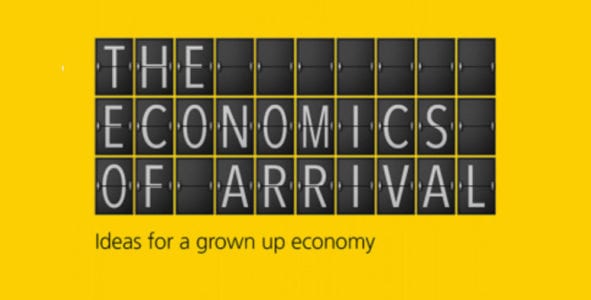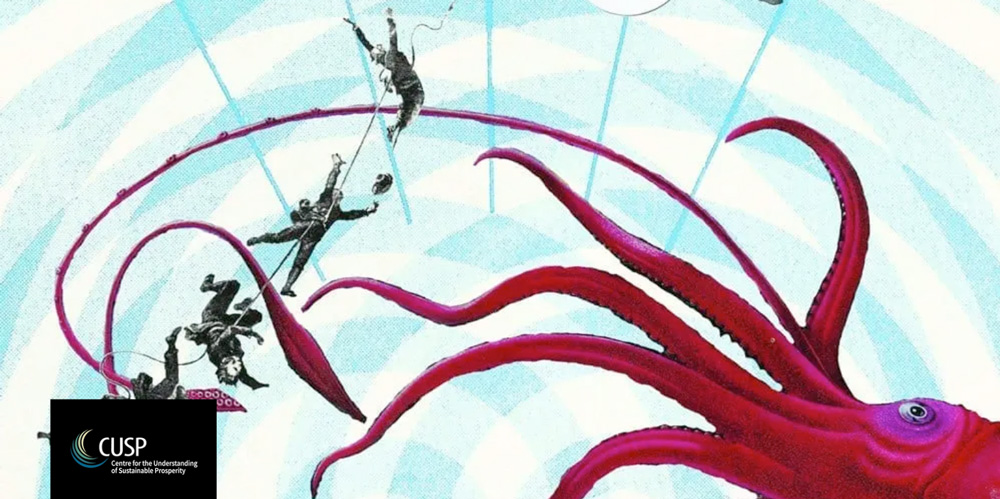All grown up—making ourselves at home in a world beyond growth
The last century has seen unprecedented economic and social progress for many people in many parts in the world. In light of climate change, and social and economic instability, the challenge is now to make ourselves at home with this wealth, to ensure, in the interests of equality, that everyone is included.

In 1890 the political economist Jean Charles de Sismondi published Nouveaux Principes d’Economie Politique. It was a powerful work of humanitarian protest against an economy that saw wealth accumulation as an end in itself. Wondering if economic expansion looms too large in the political imagination is by no means a new idea, and in the 130 odd years since de Sismondi wrote about it, the problem has only become more acute.
Financial wealth can be a major tool in human development and emancipation. The 20th century saw decades of steady growth in the industrialised world, and unprecedented economic and social progress along with it. Between the economic collapse of 1929 through to the late 1970s, growth was accompanied by policies to close the gap between rich and poor. It was a time of economic equalisation, as union rights expanded and workers enjoyed a greater share of the wealth through their wages. Women entered the workforce in large numbers, reducing gender inequality. Levels of education rose, improving job quality and raising wages for low skilled workers. Progressive tax regimes were implemented, and social welfare programmes expanded. While poverty and hardship have not been eliminated altogether in industrial economies, many people are richer, healthier and better cared for today than previous generations could ever have imagined.
Having come this far, it is troubling to consider how much of this progress is threatened by climate change, inequality, environmental decline and extreme politics. After all these gains, the next generation may see achievements slipping away. Others, still on the outside of that progress, may find the door closing on them as competition for resources and the mounting damage of climate change begin to erode gains as fast as development can proceed.
Wealthy economies still pursuing growth are like a man in an orchard with an armful of apples, who can’t stoop to pick up any more without dropping what he’s already carrying.
Of course, it’s easy to say that a country has ‘enough’ wealth and resources, but that doesn’t imply that everyone has what they need. Wealth may be distributed very poorly—the richest 10% of households in Britain own more wealth than the first eight deciles put together.
Neither does it feel like an age of prosperity. The number of people on zero hour contracts has quadrupled since the financial crisis, and earnings can feel insecure and precarious. The little victories of consumerism are short lived. Our prized possessions rapidly lose their gloss – the iPad 4 came out just eight months after the iPad 3. We’re always one more purchase away from happiness, the advertisers tell us: just a gym membership short of physical perfection, one insurance policy short of the peace of mind we long for. But satisfaction through consumption is a false promise, and it marginalises those who can’t afford to participate.
De Sismondi argued that the world needed a new set of principles for the political economy, and that remains true today. One of those principles is what we call ‘Arrival’—the possibility that GDP-rich countries can reach a point of maturity where they have enough wealth and resources to provide a good life to all their citizens. Having arrived, they can refocus from quantity to quality, ensuring that everyone is included. We call this ‘making ourselves at home’.
We would argue that many of the world’s richest nations have indeed arrived and could be considered ‘fully grown’. The task now is to pay more attention to distribution and inclusion, pursuing improvement rather than enlargement. This would not be a mythical end of progress, but the beginning of a new chapter. J M Keynes hinted at this when he described a future people who would be free to cultivate ‘the art of life’, once the ‘means of life’ had been secured. With the survival priorities taken care of, they could look to other forms of progress, such as increased leisure time, more participative democracy, or a shift from consumerism to ‘experientialism’.
Despite its historical roots, this remains a provocative idea. The forces acting against such a shift are formidable. Political success is measured in GDP growth. The economy collapses into recession and job losses without it. International institutions ascribe voting rights or places at the table on the basis of economic power. And there’s our own psychology to contend with—there is a human tendency to think of more as better, and growth as good. Keynes warned that it would be hard to adjust.
So did J K Galbraith. “To have failed to solve the problem of producing goods would have been to continue man [sic] in his oldest and most grievous misfortune” he wrote. “But to fail to see that we have solved it and fail to proceed hence to the next task would be fully as tragic.”
It would be tragic enough if society failed to notice and appreciate the abundance it already has. But it could be worse. By pursuing the goals of the 19th and 20th centuries into the 21st, despite them being ostensibly met, the economic models of developed countries may begin to undo the hard work of previous generations. To abuse that abundance, and in so doing pass on a poorer future to future generations—not to mention the ongoing injustice of so poorly sharing the benefits around the world today—constitutes a huge betrayal of the opportunities and possibilities of today’s world.
Katherine Trebeck is a researcher and member of the CUSP Advisory Committee, she works as the Policy and Knowledge Lead for the Wellbeing Economy Alliance. Jeremy Williams is a sustainability writer and activist who blogs at makewealthhistory.org. Their new book, The Economics of Arrival: Ideas for a grown-up economy, is out now from Policy Press.



